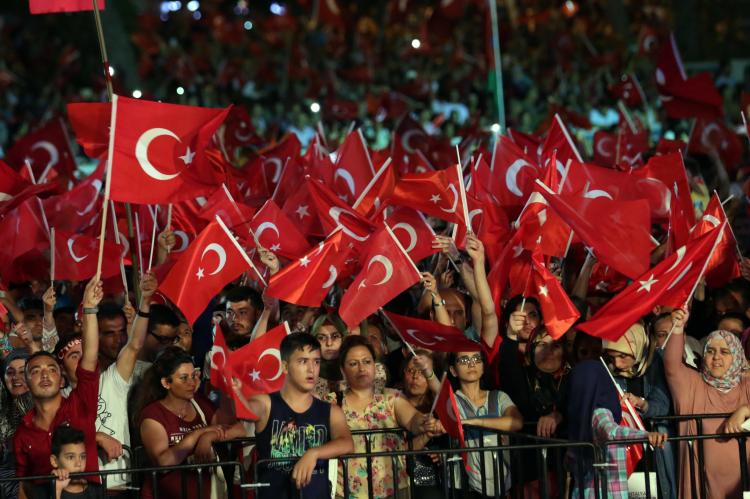Chatham House article includes factual mistakes
An article written by Fadi Hakura includes factual mistakes about the post-coup process in Turkey
Fadi Hakura had an article published on the Chatham House website, run by the Royal Institute of International Affairs, on 21 July 2016 about the aftermath of the failed coup attempt in Turkey, in which there were certain factual mistakes.
First of all, the author addresses Turkish President Recep Tayyip Erdogan as the person behind the entire post-coup process. He writes:
“President Recep Tayyip Erdogan has responded with an iron fist to last Friday’s failed military coup attempt in Turkey by detaining, dismissing or suspending, so far, 60,000 military officers, police and intelligence officials, judges, teachers, academics and civil servants, and imposing a widespread travel ban and a three-month state of emergency.”1
As a matter of fact, President Erdogan is not entitled to detain, dismiss or suspend people. Turkey is a country run by the rule of law and accordingly, public prosecutors make the decision of detaining someone whereas, governors and district governors are entitled to issue a dismissal or suspension in public service according to the Public Employees Law No. 657. Click here to read more on the process of dismissal and suspension.
Secondly, the article incorrectly claims that Erdogan “vows to reintroduce the death penalty”. Erdogan, in fact, showed the parliament as the place where capital punishment could be reintroduced if it gets enough votes by Memberss of Parliment (MPs). Erdogan’s original words on the capital punishment read as follows:
“If the people demand it [capital punishment] and the parliament approves the necessary legislation, I will sign it as the President.”2
According to the 89th clause of the Turkish constitution, the president has to either approve or veto legislations enacted in the parliament within 15 days. Additionally, on capital punishment, it was then-prime minister Erdogan’s AK Party that abolished the death penalty in 2004, two years after they came to power- a piece of information the article has left out.
Thirdly, in the article the speaker of the parliament is presented as “Erdogan's ally” and then quoted as saying, “secularism cannot feature in the new [religious] constitution’'. However, Erdogan did not agree with the speaker. He responded to him saying, “the speaker of the parliament expressed his own ideas. The state, however, has to remain at equal distance to all religious groups.” This piece of information has also been left out in the article.
The author also provides numbers about the detained soldiers and expresses concern over the loss of experienced military personnel since Turkey is a NATO member. At this point, no information as to why the soldiers have been detained is presented. Putschist soldiers within the Turkish Armed Forces attempted a coup on 15 July 2016. The Chief of Staff of the Turkish Armed Forces Hulusi Akar was taken hostage by junta soldiers in the same evening. Jet fighters led by junta staff bombed the Presidential Complex and the parliament in Ankara. Military tanks roamed the streets, and 246 people resisting the coup were killed by rogue soldiers, 179 being civilians. Therefore, an investigation of the coup plotters within the army started upon the order of public prosecutors. Click here to read more on what happened on 15 July 2016.



